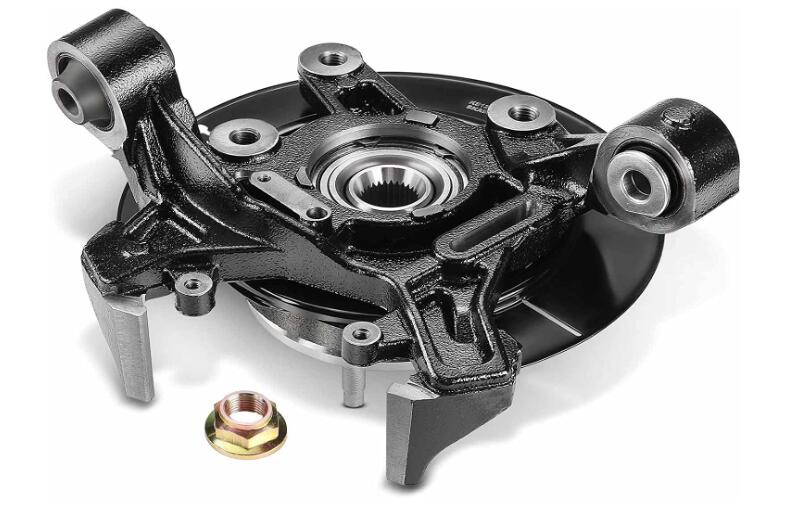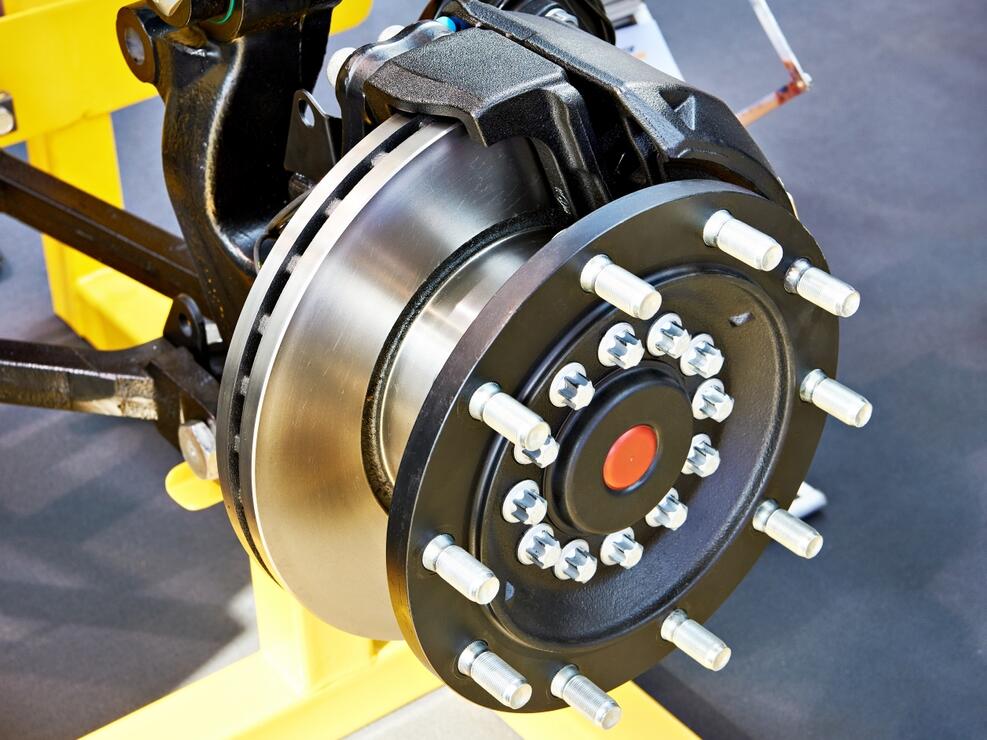Introduction
In the vast ecosystem of automotive components, wheel hubs play a pivotal role that is often overlooked.
These critical components serve as the mounting assembly for the wheels, a juncture where numerous crucial systems, such as the braking, steering, and suspension systems, converge.
The quality of the wheel hubs can significantly impact the overall performance and safety of the vehicle.
This article dives into how high-quality wheel hubs can enhance vehicle performance and the distinctiveness of premium hubs in the market.
The Integral Role of Wheel Hubs in Vehicle Performance
A wheel hub’s primary function is to support the wheel, allowing it to rotate freely on the bearing while withstanding the vehicle’s weight and road forces.
However, its impact on vehicle performance extends beyond this basic function.
A high-quality wheel hub is designed for an optimal stiffness to maintain wheel alignment under various loads.
This affects the vehicle’s handling, steering precision, and tire wear.
Furthermore, the bearing of the hub can influence rolling resistance, impacting fuel efficiency.
A high-quality bearing ensures the wheel rotates smoothly by minimizing friction, reducing energy losses, and improving fuel economy.
A wheel hub also houses the wheel speed sensor in vehicles with anti-lock braking systems (ABS).
The ABS relies on these sensors to monitor wheel speed and prevent the wheels from locking up during braking.
Therefore, a well-designed wheel hub is essential to ensure accurate ABS sensor readings and effective functioning of the ABS, enhancing vehicle safety.
Unpacking the Components of High-Quality Wheel Hubs
A wheel hub’s quality depends on the design, materials, manufacturing process, and quality control.
Firstly, the design must ensure proper fit and alignment with the vehicle’s suspension system and account for load distribution, heat dissipation, and vibration dampening.
Any design flaws can result in premature wear, poor handling, and other performance issues.
Secondly, the materials used are critical. Most wheel hubs are made of high-grade steel or aluminum for strength and durability.
Steel hubs are known for their high load-bearing capacity, while aluminum hubs are preferred for their lightweight, which can enhance vehicle fuel efficiency.
The manufacturing process also plays a significant role in a hub’s quality.
Advanced techniques like forging and precision machining produce robust, accurate, and reliable wheel hubs.
Lastly, rigorous quality control is essential to detect and rectify defects or deviations from the specifications.
High-quality wheel hubs undergo extensive testing for dimensional accuracy, material strength, and life-cycle durability.
High-Quality Wheel Hubs: A Worthwhile Investment
Despite their relatively higher cost, high-quality wheel hubs are worthwhile for several reasons.
Firstly, they offer improved handling, ride comfort, and fuel efficiency performance.
They also enhance vehicle safety by supporting the effective functioning of the ABS and other vehicle systems.
Secondly, high-quality hubs are more durable, reducing the frequency and cost of replacement.
Frequent replacements not only increase the direct cost of the hub itself but also lead to additional costs in terms of labor, vehicle downtime, and potential damage to related components.
Lastly, the use of high-quality wheel hubs contributes to increased customer satisfaction.
Drivers of vehicles equipped with such hubs enjoy smoother rides, better handling, and less noise and vibration.
This, in turn, can lead to increased brand loyalty and positive word-of-mouth for vehicle manufacturers and dealers.
From Manufacturing to Aftermarket: The Role of High-Quality Wheel Hubs
Manufacturing is just one side of the coin regarding the role of wheel hubs. In the aftermarket, the demand for high-quality wheel hubs is equally compelling.
Vehicle owners who understand the critical role of wheel hubs often opt for high-quality replacements to preserve and even enhance the performance and longevity of their vehicles.
Aftermarket wheel hubs must meet stringent quality standards similar to their original equipment (OE) counterparts.
The competitive landscape of the aftermarket sector also means that providers must ensure their offerings strike a balance between cost-effectiveness and high performance.
Thus, high-quality wheel hubs are often associated with superior materials, innovative designs, and state-of-the-art manufacturing processes that maximize value for the end user.
Emerging Trends and Future Outlook
As we look toward the future, several trends underline the growing importance of high-quality wheel hubs.
For one, the rise of electric vehicles (EVs) presents new challenges and opportunities.
EVs place different demands on wheel hubs than conventional vehicles, primarily due to their high torque and heavier weight resulting from the battery packs.
This will necessitate the development of wheel hubs with enhanced load-bearing capabilities and thermal management features to handle the increased heat generated by EV braking systems.
Another key trend is the integration of smart technology into wheel hubs.
The rise of autonomous and connected vehicles is leading to the evolution of wheel hubs into ‘smart’ components with integrated sensors and electronic systems.
Such advancements will make high-quality production even more critical, as these components will play an even more significant role in vehicle performance and safety.
The Relationship Between High-Quality Wheel Hubs and Sustainability
Another facet of the importance of high-quality wheel hubs pertains to environmental sustainability.
The automotive industry is under increasing pressure to reduce its environmental impact, and every component, including wheel hubs, has a role to play.
High-quality wheel hubs contribute to sustainability in several ways.
Firstly, as mentioned earlier, they can improve fuel efficiency, reducing the vehicle’s carbon footprint.
Secondly, their longer lifespan means fewer replacements, resulting in lower materials and energy consumption for manufacturing and reduced waste.
Moreover, many manufacturers of high-quality wheel hubs are adopting environmentally friendly practices.
This includes using recycled or recyclable materials, reducing emissions and waste during production, and implementing energy-efficient manufacturing processes.
Choosing High-Quality Wheel Hubs: Key Considerations
While the benefits of high-quality wheel hubs are evident, choosing the right one for a specific vehicle can be challenging due to the wide range of options available. Here are some key considerations:
- Compatibility: Ensure the hub is compatible with your vehicle’s make and model. Compatibility extends to the brake system, wheel size, and other components.
- Material: As discussed earlier, the material used in the hub can significantly impact its performance and lifespan. Steel hubs are suitable for heavy-duty applications, while aluminum hubs are ideal for applications where weight reduction is a priority.
- Manufacturer reputation: Choosing wheel hubs from reputable manufacturers known for their quality control and commitment to innovation is advisable. Customer reviews and professional recommendations can be helpful in this regard.
- Certifications: Look for hubs that meet or exceed industry standards and have certifications from recognized organizations. These certifications serve as a guarantee of quality and reliability.
- Warranty: A good warranty can offer peace of mind and protection against defects or premature failure. It is also a testament to the manufacturer’s confidence in their product.
Understanding the Indicators of Wheel Hub Health
To truly leverage the benefits of high-quality wheel hubs, it’s crucial to understand the signs of a healthy (or failing) wheel hub.
Regular maintenance and timely replacement of this crucial component can extend a vehicle’s lifespan and performance.
Some common signs of wheel hub problems include:
- Unusual Noises: If you hear grinding, clicking, or humming sounds from your wheel hubs, this could indicate a worn or failing wheel bearing within the hub.
- Vehicle Pulling: This could be a wheel hub issue if your vehicle pulls to one side while driving or braking.
- Vibrations: If you feel vibrations through the steering wheel or vehicle’s body while driving, particularly at certain speeds, it could indicate a problem with the wheel hubs.
- ABS Light Activation: Many modern wheel hubs have built-in sensors for the Anti-lock Braking System (ABS). If these sensors malfunction, the ABS warning light will illuminate the dashboard.
The Path to Wheel Hub Excellence: Quality Assurance
Behind every high-quality wheel hub lies an intricate design, material selection, and manufacturing process.
However, the true cornerstone is a rigorous Quality Assurance (QA) process.
QA involves a series of tests and inspections throughout the manufacturing process to ensure the final product meets the required performance and safety standards.
It typically includes material inspections, dimensional checks, hardness testing, performance testing, and failure analysis.
Reputable manufacturers have stringent QA processes and often have their products independently tested to verify their claims.
These manufacturers understand that their reputation hinges on the quality and reliability of their products and spare no effort in ensuring they deliver on their promises.
The Competitive Edge: High-Quality Wheel Hubs
High-quality wheel hubs can offer a crucial competitive edge in today’s competitive automotive market.
Manufacturers contribute to their vehicles’ overall performance, safety, and appeal.
Aftermarket providers offer an opportunity to differentiate their products and win customer loyalty.
Vehicle owners, too, can enjoy the benefits.
High-quality wheel hubs not only enhance vehicle performance and safety but can also lead to savings in the long term due to their longer lifespan and reduced need for replacements.
In Conclusion
As we have seen, wheel hubs are more than just functional components.
They are pivotal in vehicle performance and safety and contribute to the industry’s sustainability goals.
High-quality wheel hubs offer numerous benefits for all stakeholders in the automotive industry, from manufacturers to vehicle owners.
By focusing on quality, we can ensure that our vehicles deliver superior performance and safety while contributing to a more sustainable future.
The role of wheel hubs may often be overlooked, but their importance must be balanced.
Remember the humble wheel hub and its significant role in your journey the next time you drive.




